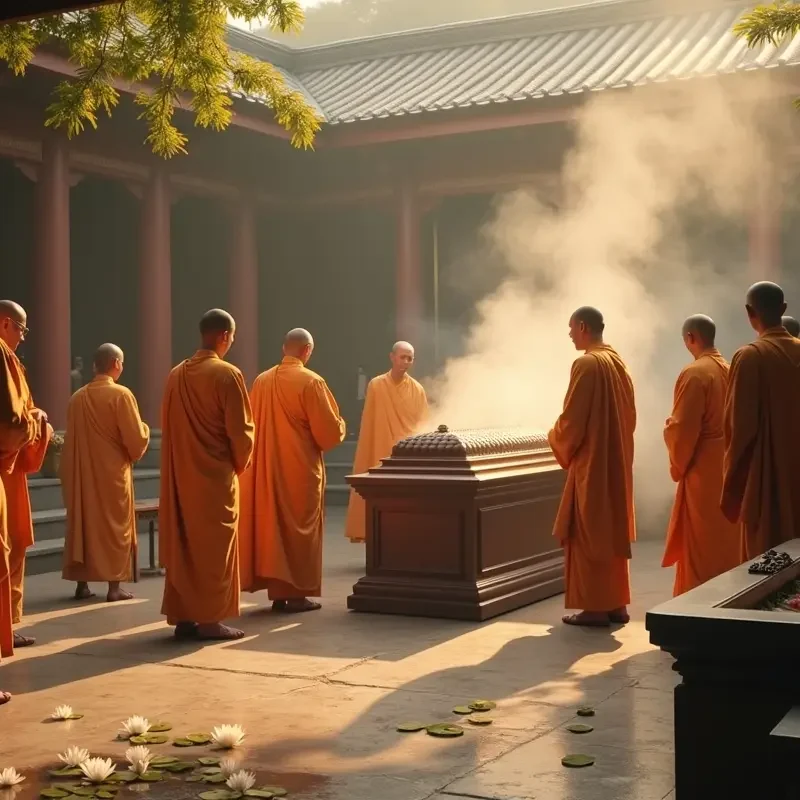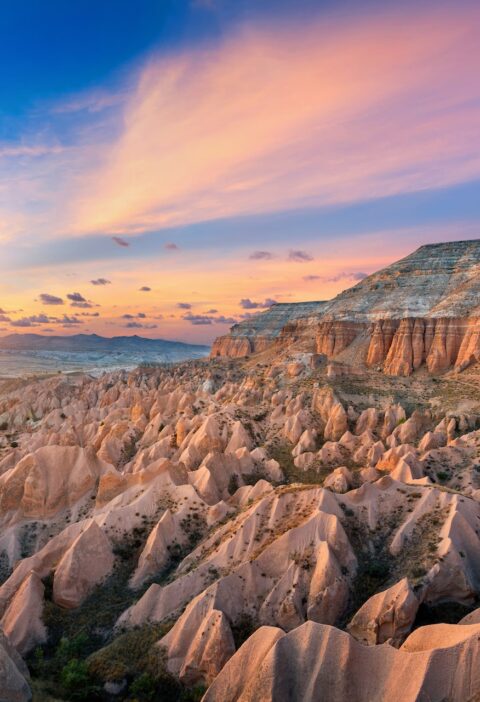When we think about funerals, many of us might envision solemn gatherings, black attire, and an atmosphere heavy with grief. But within the Buddhist tradition, funerals take on a very different tone. They are not just about mourning the loss of a loved one but also about celebrating life and embracing the cycle of rebirth.
This approach to death, with its rich rituals and deep symbolism, offers a profound way to honor the departed while also helping those left behind find peace and closure.
A Different Perspective on Death
In Buddhist philosophy, death is not seen as the end. Instead, it’s viewed as a transition—a passage to the next life. Central to this belief is the concept of samsara, the cycle of birth, death, and rebirth. According to this worldview, our actions (karma) in this life determine our fate in the next.
This perspective fundamentally shifts how death is perceived: it’s not a time for despair but rather a moment of reflection on the life lived and the journey ahead.
The Role of Compassion and Respect
Compassion is at the heart of Buddhism, and this extends deeply into its funeral practices. There’s a strong emphasis on showing respect—respect for the life that was lived, for the body that carried that life, and for the soul that has moved on. This respect is expressed in various ways, from the meticulous preparation of the body to the prayers and chants that guide the departed toward a favorable rebirth.
Rituals and Practices: A Pathway to Rebirth
Buddhist funeral services are steeped in tradition, with each ritual carrying deep symbolic meaning. These practices vary slightly depending on the specific school of Buddhism—whether it’s Theravada, Mahayana, or Vajrayana—but they all share a common goal: to aid the soul in its journey to the next life.
Preparation of the Body
Once a person passes away, the body is treated with utmost care. It is typically washed and dressed in simple, modest clothing. In some traditions, a white cloth is used to symbolize purity and the soul’s readiness for its next journey. The body is then placed in a coffin, often with items that were significant to the deceased, such as a favorite book or a religious artifact. These items are believed to provide comfort or guidance in the afterlife.
Prayers and Chanting
One of the most essential aspects of a Buddhist funeral is the chanting of sutras (Buddhist scriptures). These chants are performed by monks or family members and are believed to help the deceased’s soul detach from this life and move on to the next.
The Offering of Alms
Giving is a key virtue in Buddhism, and during funerals, offerings are made not just to the monks who lead the ceremonies but also to the poor and needy. These acts of generosity are believed to generate merit, which can benefit both the deceased and the living. It’s a beautiful practice that reinforces the interconnectedness of all beings and the importance of compassion.
The Cremation
Cremation is a common practice in Buddhist funerals, symbolizing the return of the body to the elements. Fire, in this context, is a purifying force, reducing the body to ashes and allowing the soul to continue its journey unencumbered. The ashes are often collected and either kept in a sacred place, such as a temple, or scattered in a meaningful location, like a river or the ocean.
A Time for Reflection and Letting Go
While the rituals provide structure, the true essence of a Buddhist funeral lies in the opportunity it offers for reflection. For the mourners, it’s a time to meditate on the impermanence of life, the importance of living mindfully, and the inevitability of death. It’s also a chance to let go—of grief, of attachment, and of any unresolved feelings toward the departed. The rituals, prayers, and chants all serve to ease this process, helping the living release their loved ones with love and peace in their hearts.
The Aftermath: Continuing the Journey
In the days and weeks following a Buddhist funeral, it’s common for families to continue their prayers and rituals. This might include daily or weekly offerings, lighting incense, and reciting sutras at home or in a temple. These practices help to keep the connection with the departed alive while also fostering a sense of peace and acceptance among the living.
Memorial Services
Buddhism places great importance on remembering and honoring the dead. Memorial services are held at various intervals—often on the 7th, 49th, and 100th days after death, and annually thereafter. These services are an opportunity to gather family and friends, offer prayers, and make offerings in memory of the deceased. They serve as a reminder that while life is transient, love and respect endure.
Embracing Life and Death
In a world where death is often feared and avoided, the Buddhist approach teaches us that it is a natural, even beautiful, part of the journey.







